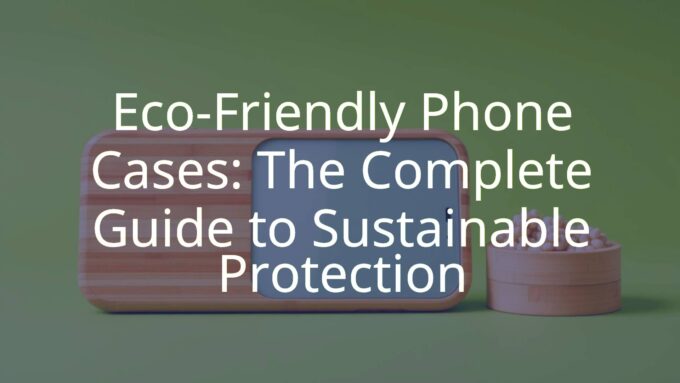Are you searching for other options besides Amazon for your online shopping? You’re not alone. A growing number of shoppers are looking at different sites because of concerns about Amazon’s business methods or a wish to back smaller businesses with shared values. Whether you want to shop more ethically, support local stores, or just find a new way to buy what you need, plenty of other online shopping sites are worth your attention. This article explains why people are choosing these alternatives, outlines the main types available, and gives practical guidance for shifting your shopping habits if you want a change.

Why consider shopping somewhere other than Amazon?
Amazon is popular for its convenience and fast shipping, but many people are beginning to look more closely at its practices and impact. Moving to other shopping options isn’t just a passing fad-many want to shop in ways that reflect their beliefs about fairness, sustainability, and community support.
Concerns about company ethics
A big reason shoppers look elsewhere is Amazon’s record on taxes, workers’ rights, and sustainability. For example, Amazon’s tax arrangements have been criticized, with studies estimating hundreds of millions lost by the UK government in recent years. There are also reports of unsafe work conditions, discouraging union activities, and firing employees for speaking out. Amazon’s efforts to lower its carbon emissions or improve fashion supply chains have been called lacking by watchdogs. These issues mean many people would rather give their money to businesses they feel treat people and the environment better.

Support for smaller businesses
Many buyers want their money to help small shops or independent makers, not just huge corporations. Some think Amazon’s size hurts these smaller companies. By picking sites focused on small businesses, buyers can help keep unique and local shops going. Some shopping platforms even highlight or directly support local artists and family-run shops, which helps local economies thrive.
Better product selection and unique items
Amazon sells nearly everything, but the sheer volume can be too much. Shopping elsewhere can make it easier to find special products or higher-quality, carefully chosen goods. For instance, some sites focus on only sustainable food, local crafts, or clean beauty, making shopping simpler and even helping buyers discover items they wouldn’t find on Amazon.
Price and delivery differences
Many people think Amazon always has the lowest prices and fastest shipping, but that’s not always true. Some sites price-match, offer discounts to members, or give free delivery over a certain amount, even without a membership fee. While deliveries from smaller sites can take longer, these shops sometimes offer options like local pickup or carbon-neutral shipping, which appeals to environmentally-minded shoppers.
Data privacy worries
With more personal information ending up online, many people are uneasy about how companies like Amazon use their data. Some smaller shops make data protection a selling point, with transparent privacy policies and less data collection, making them appealing if you’re careful about digital privacy.
Types of Amazon alternatives
Online shopping now offers many options. Understanding what’s out there can help you choose the right place to shop next.

Online marketplaces
Sites like Etsy let makers and small shops sell directly to buyers, often featuring handmade, vintage, or unique items. Hive is another example (especially in the UK), focusing mainly on books and music while supporting independent stores. These platforms put more money in the hands of creators and offer very unique items.
| Marketplace | Focus | Strengths |
|---|---|---|
| Etsy | Handmade, vintage, custom items | Direct support for creators, huge variety |
| Hive | Books, eBooks, vinyl | Supports indie bookstores, choice to support local |
Stores specializing in specific products
Some online retailers sell just one kind of product but do it well. For example, Credo Beauty focuses on clean skincare, while Blue Nile is known for fine jewelry. These sites offer expert advice and a more focused selection. They’re perfect for buyers who know what they want and care about quality.
Stores focused on ethics and sustainability
Many companies now make it easy to shop for ethical and eco-friendly products. Sites like EarthHero check that every brand meets standards for fairness and sustainability. Grove Collaborative sells only eco-friendly house and personal care items, aiming for plastic-free shipping by 2025. DoneGood features brands that pay workers fairly and focus on both people and the planet.

| Site | Main Goods | Ethical Focus |
|---|---|---|
| EarthHero | Wide range (baby, home, beauty) | Sustainably sourced products only |
| Grove Collaborative | Cleaning & personal care | Non-toxic, cruelty-free, carbon-neutral |
Smaller and local online shops
Many small or family-run stores now sell online. Buying here helps support local jobs and keeps money in your community. For books, Bookshop.org and Hive make it easy to support nearby shops. Local hardware stores and specialty stores often now have online ordering too.
Subscription and membership sites
Websites like Thrive Market let you pay a fee to access cheaper organic groceries. Public Goods works similarly, offering household basics with a yearly membership. Chewy has a subscription service for pet supplies, and Grove Collaborative lets you set up flexible regularly scheduled orders for cleaning or bath goods. These can be good deals if you buy the same items often.
Choosing the right Amazon alternative: What to look at
Switching away from Amazon gives you many options. Here’s what to think about before you buy:
- Selection: Check if the shop sells what you need. Some sites are best for unique gifts (Etsy, Uncommon Goods), others for food (Thrive Market), and some for everything (Target, Walmart).
- Prices and delivery: See if they offer deals, free shipping, or membership discounts. Some ship fast, others focus on reducing waste or emissions.
- Returns and customer help: Understand the store’s return policy and how to get help if something goes wrong. Some smaller shops give more personal support than Amazon.
- Ethics and transparency: If you care about fairness or the environment, look for stores with clear policies and certificates (like B Corp). Read what they say about labor, sourcing, or donations.
Top Amazon alternatives by category
Here are top picks for certain products, making it easier to find what you need outside of Amazon:

Books and audiobooks
- Bookshop.org: Helps independent bookstores, gives 10% of each sale to them, and lets you choose who to support. Fast shipping and regular deals.
- Hive: UK-based, supports local bookstores with every order.
- World of Books, Better World Books: Sell new and used books, often at a discount, and donate books to those in need.
- eBooks and audiobooks: Libby (library app), Kobo for eBooks, and Libro.fm or Spotify for audiobooks-each connects you to local stores and has a large catalog.
Groceries and food
- Thrive Market: Membership-based, organic groceries at lower cost, carbon-neutral shipping.
- Martie: Sells surplus groceries at up to 80% off.
- HiveBrands.com: Sells sustainable pantry items and household supplies.
- Instacart: Fast, same-day grocery delivery from many stores.
Clothing and fashion
- Patagonia: Well-known for ethical materials and practices.
- Smaller brands: THTC, Brothers We Stand, or buy second-hand-it’s the most eco-friendly.
- Lululemon: Great for activewear and comfortable every day clothing.
Home goods and decor
- Uncommon Goods: B Corp, unique gifts and home items, gives back from each purchase.
- World Market: Focused on fair-trade decor and food.
- Package Free, Public Goods, Grove Collaborative: Offer eco-friendly home and cleaning products, reducing waste and using natural materials.
Beauty and wellness
- Credo Beauty: Focuses on clean, cruelty-free skincare and makeup. Also supports minority-owned brands.
- BLK + GRN: Platform for Black-owned, natural beauty products. Eco-friendly and tested for quality.
- Grove Collaborative: Non-toxic personal care, flexible subscriptions.
- Ulta Beauty: Wide variety with some social initiatives.
Electronics and gadgets
- Kobo: E-readers with better ethical ratings than Kindle.
- Refurbished electronics: eBay Refurbished for discounted, safer buying.
- For tablets: Apple’s iPad rated better for ethics than Amazon devices.
Gifts and unique finds
- Uncommon Goods, Etsy: Handmade, custom, and unusual gifts from small sellers.
- Ten Thousand Villages: Fair trade gifts from around the world.
- Plastic Freedom and Shared Earth (UK): Zero-waste and ethical gifts, including jewelry and food.
Pet supplies
- Chewy: Pet food, medicine, and accessories, plus a subscription option for repeat orders.
- EarthHero: Sells pet supplies from sustainable brands.
Popular Amazon alternative platforms
| Platform | Main Focus | Noteworthy Features |
|---|---|---|
| Thrive Market | Organic groceries and home | Discounted prices, sponsors memberships for families in need, carbon-neutral |
| Etsy | Handmade and vintage goods | Direct support for small makers, sustainable energy use |
| Uncommon Goods | Unique gifts and home items | B Corp, supports independent makers, donates to charities |
| Bookshop.org | Books | Gives earnings to local bookshops |
| Grove Collaborative | Eco-friendly household/personal care | Plastic free, carbon neutral, flexible subscriptions |
| EarthHero | Sustainable lifestyle | Screens all brands, offsets emissions |
| Target / Walmart | General goods | Membership/loyalty perks, price matching, fast pickup or delivery |
| Temu | Bargain online shopping | Very low prices, longer shipping, tree-planting initiative |
Other helpful resources
- Bookstore or local shop directories: Find your nearest independent bookshop or local business using The Booksellers Association or simply search online.
- Check for local or country-specific platforms: Bookshop.org and other services sometimes have country-specific sites (e.g., UK, US).
Switching from Amazon: Steps to get started
- Shop local first: Before using a large site, check local or small business sites. Many have good websites or take orders over the phone. Local shops may help with special requests or advice too.
- Look for deals: Sign up for emails or loyalty programs from alternative retailers. Many offer savings for members, discounts for first-timers, or regular promotions.
- Set up subscriptions elsewhere: If you use Amazon Subscribe & Save, try moving repeat orders to sites like Chewy or Grove Collaborative. Many offer similar discounts and flexibility.
- Stay updated on new sites: Follow blogs and communities focused on ethical consumer choices. Look for certifications like B Corp, and use resources like Goods Unite Us to check company policies or donations.
FAQs about Amazon alternatives
Are these alternatives more expensive?
They can be, but not always. Sites like Thrive Market, Public Goods, and Martie offer lower-than-retail prices, sometimes beating Amazon, especially after member or first-purchase discounts. Target and Walmart often match Amazon’s prices, especially during big sales. Many alternatives add value with ethics or customer service that can make them a smarter buy overall.
Can I find everything I need without Amazon?
Yes, for most things. It might take a bit more searching across different sites, but from groceries to electronics, there are solid alternatives for almost any type of product. You may need to get used to shopping at different places for different items, but this can mean better service and more thoughtful purchases.
How reliable are these alternatives with service and delivery?
Delivery speed and service depend on the platform. Some sites deliver as quickly as Amazon, especially big retailers or those focused on same-day groceries. Others may be slower, but make up for it with transparent tracking and personal customer support. Many shoppers feel the trade-off is worth it if it means supporting good practices and smaller businesses.












Leave a comment